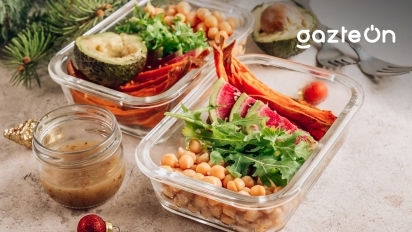Workshop on good practice in the donation of surplus food: a solidary solution that reduces food waste
<p> The Workshop on Good Practices in the Donation of Surplus Food began by highlighting the importance of prevention in order to avoid creating food surpluses, the guidelines for the donation of surplus food in the Basque Country and the need for action plans.</p>

Arantza Madariaga, Managing Director of Elika Fundazioa, emphasised the "Actions against food wastage in the Basque Country". In this area, she mentions the guidelines and says that "it is intended to be a living document that is constantly being updated". In her field, she places special emphasis and attention on having a diagnosis of the situation in order to be able to draw up the ideal strategy. In this respect, she informs us of the delay that the diagnosis has suffered due to the pandemic; it is vital to have real, undistorted data. She also stresses the idea that "whatever is going to be done should be done in complete safety, not to create new problems", in other words, that the donation should be done safely. In this sense, legal and food safety are important for proper management. She ended her speech by mentioning the area of technological solutions on which they are working.
Jose Maria Escudero, from the Subdirectorate of Public Health and Addictions of Bizkaia-Basque Government, in his speech on "Hygiene and health requirements in the donation of food surpluses. Guide for donation" highlights, among other things, the origin of surplus food in the Basque Country. To this end, he showed us data taken from the FAO: Households 51%, Catering 17%, Production 13%, Transformation 12% and Distribution 5%. In this sense, he says that "strategies aimed at the consumer are essential". Regarding the guide, which can be downloaded at www.zerodespilfarro.eus, he mentions that it was published in December 2020, coordinated/edited by Elika, and that it was made from the perspective of food hygiene and safety.
Denis Ugalde, Founder and CEO of OREKA, talks about the "Redistribution of surplus food from central kitchens and collective canteens". He conveys the message that OREKA has developed an end-to-end solution, they are bringing together the lack of food in homes and food waste in a simple, safe and cost-effective way. To make all this possible, they offer technology, and they monitor the process. In Denis' words, "it is the backbone" and is materialised in segments such as: adapted transport, audits at destination, real-time traceability, random testing and limited liability. He closed his speech by highlighting the work they do: "to provide a simple solution to a complicated problem" and mentioning the Food Loss and Waste Prevention Regulation that will most likely come into force on 1 January 2022. This law will involve the entire food chain and will oblige communities.
Elena Cereda, from the Buruxka Project, talks about the "Recovery of gleaning as a social and environmental value". The project aims to reduce the social and environmental impact of food losses in agriculture and to generate a social movement around food waste. She explains that it is a multi-level collaborative project, located in the Yerri Valley, and that its duration expires in December 2021. Regarding the gleanings, she tells us that they consist of collecting the food left in the fields after the harvest that is not destined for sale. Finally, she talked about the future of Buruxka, stressing the idea of creating a social and solidarity economy entity to give continuity and shape to everything created between June 2020 and December 2021 and to stop the growing depopulation.

